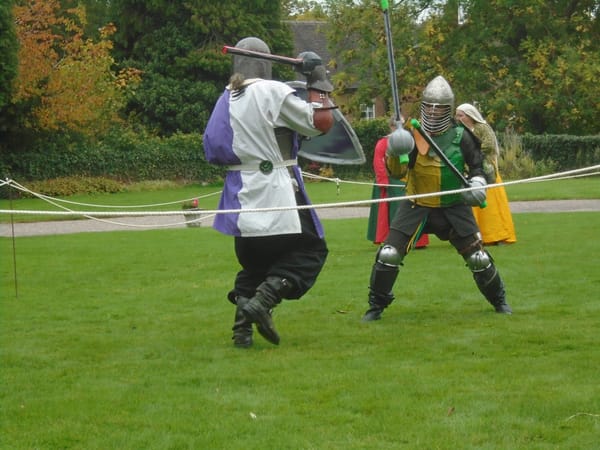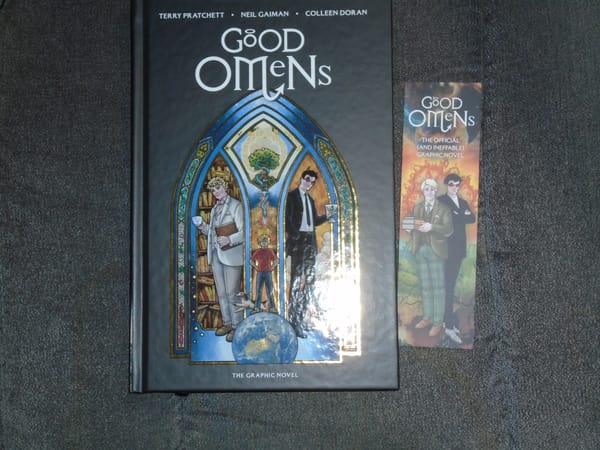Oh, no, it isn't!

I'm not writing a pantomime. Let's just make that 100% clear.
Thing is, we had a little misunderstanding in the drama group. I'm delighted to say there wasn't so much as a hint of unpleasantness about it; it was just one of those things. However, it did take me the whole of Friday to clear up, and I wasn't in the best of moods anyway due to the heat, so it was all a bit stressful.
I had agreed, as you already know, to write the next play; and the rest of the group, in my absence, got all excited and decided it was going to be a pantomime. I wasn't told about this, but that was most likely because they'd forgotten I wasn't there at the time. (I am quite often not, because if the rest of the group gets together at someone's house, unless it's very near here that is quite awkward for me because of Sibyl; so I tend not to go, and if I'm needed there's usually the option for me to attend via Zoom.) So I'm not blaming anyone, but nonetheless, when I found out - which I had to do kind of sideways - that left me in a very embarrassing position.
I e-mailed the organiser and explained this. Now I'm not trying to be awkward here; if we had more time, I'd be quite happy to be flexible, do research, whatever. The problem is, this thing has to be performance-ready by Christmas, and there obviously does need to be plenty of rehearsal time, so I am going to have to write it pretty fast. Which I can do... provided I can stick with what I know. And I don't know pantomime. We were never taken to one as children, and as an adult I never had any children of my own (otherwise I'd probably have made a point of taking them, simply because we weren't taken); also, for a long time I didn't have the money to justify going to one on my own, and by the time I did have the money I'd discovered that what I enjoyed more than anything else was baroque/early music concerts. I do have a vague idea about basic pantomime tropes, which I've kind of absorbed by osmosis, so I can certainly include some of them. It will be a comic play; it will be family-friendly; there will probably be music (though, given the time scale, rather than bothering the three excellent composers I know, what's most likely to happen is that I'll end up writing new lyrics to old tunes, leaning quite heavily on Gilbert & Sullivan as then we won't have to worry about copyright); and, as I say, there may well be some standard pantomime tropes. So it'll most probably be pantomime-ish, but if I'm going to write this thing, I need to insist quite strongly that it isn't referred to anywhere as a pantomime. Because that's going to give people certain expectations, and the last thing I want is people turning up and going "that's not a pantomime - it doesn't have X!" and being disappointed. I want it referred to, and judged, as a play. I said that if a pantomime was what they really wanted, that was absolutely fine with me, and I would not be offended or take it personally, but they would have to find it elsewhere.
And the organiser replied and said, that's fine, we respect that, we'd far rather have you write something bespoke for the group than insist on having a pantomime. I thought that had settled it, but I was wrong; later that day she e-mailed about something else, and she was still not only referring to this play as "the pantomime", but also trying to tell me we have two pantomime experts in the group who could advise.
No, no, and again no. Not this time, anyway. Maybe at some point in the future when there isn't the time pressure. So I replied, gently but firmly, that I'd greatly appreciate it if the whole group could get into the habit, starting right now, of referring to the production as "the play" and not "the pantomime", in case they accidentally refer to it as "the pantomime" to someone outside the group and create the wrong set of expectations.
I think that finally did it.
Though it was, as I say, quite stressful at the time, I'm quite glad it happened overall, because it's taught me to be better at anticipating what might be asked of me and heading it off at the pass, as it were. I will be as flexible as I possibly can (and when you're writing a play to accommodate a highly diverse cast like ours, you truly need to be), but I also need to be very clear where the boundary lines go; because the absolute bottom line here is that I'm not going to write anything unless I can be confident I'm going to make a good job of it. Otherwise, it'll reflect badly on the whole group. So the organiser told me we were going to have a meeting on Thursday to discuss the script, and I thought about that, and because of what had just happened over the pantomime I said this:
"Great, but please don't give me an overarching plot. Subplots are fine, and I'll try to work in as many of them as I can, but the main plot is going to be determined by the characters. I'm not Arthur C Clarke. He was a very good writer, but what he'd do would be to think of a killer plot and then work the characters in around it. That's the polar opposite of how I work."
I didn't add that this is probably why Arthur C Clarke never did any drama. You pretty much have to be a character writer to make that work. Fair play to him, I do enjoy his stories; but a lot of his characters were still pretty cardboard, and you just can't have that on stage. And in the script meeting on Thursday, I'm going to be gently encouraging the cast not to come up with subplots out of the air, no matter how good they are. I'm going to ask them to think about what their character might plausibly do or have happen to them to create a subplot. To take a mildly silly example, if you have a play set in the 19th century, then you could have a subplot about someone being born out of wedlock... but not if that play is set on a pirate ship, where nobody's going to care a straw.
Writing for the stage is quite an odd thing, isn't it? I find roleplaying experience helps!




